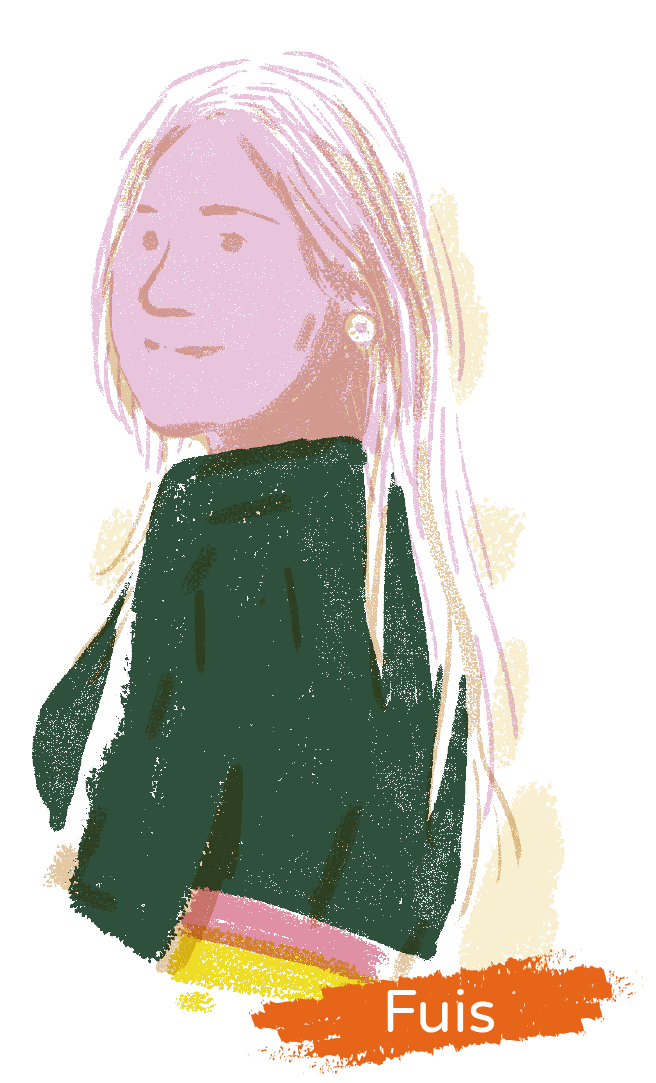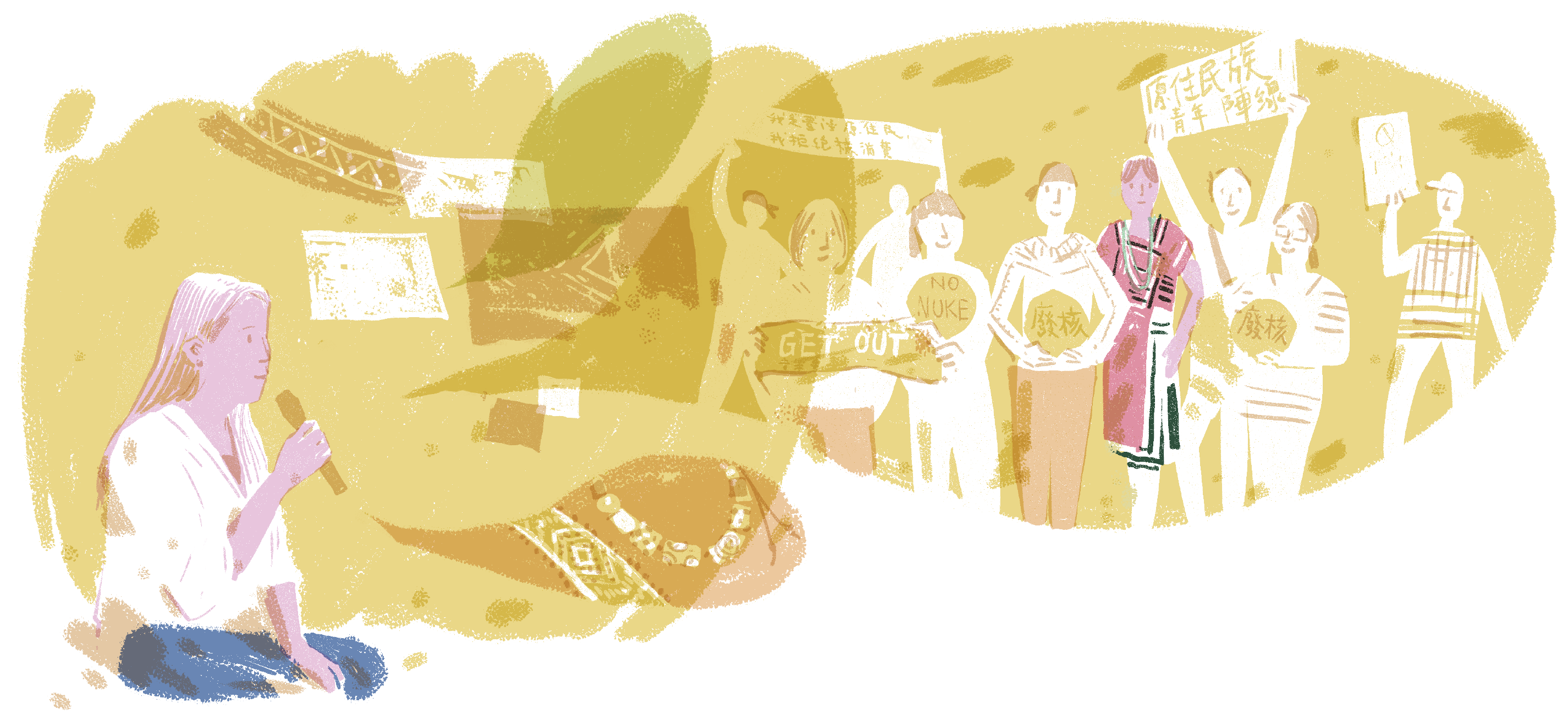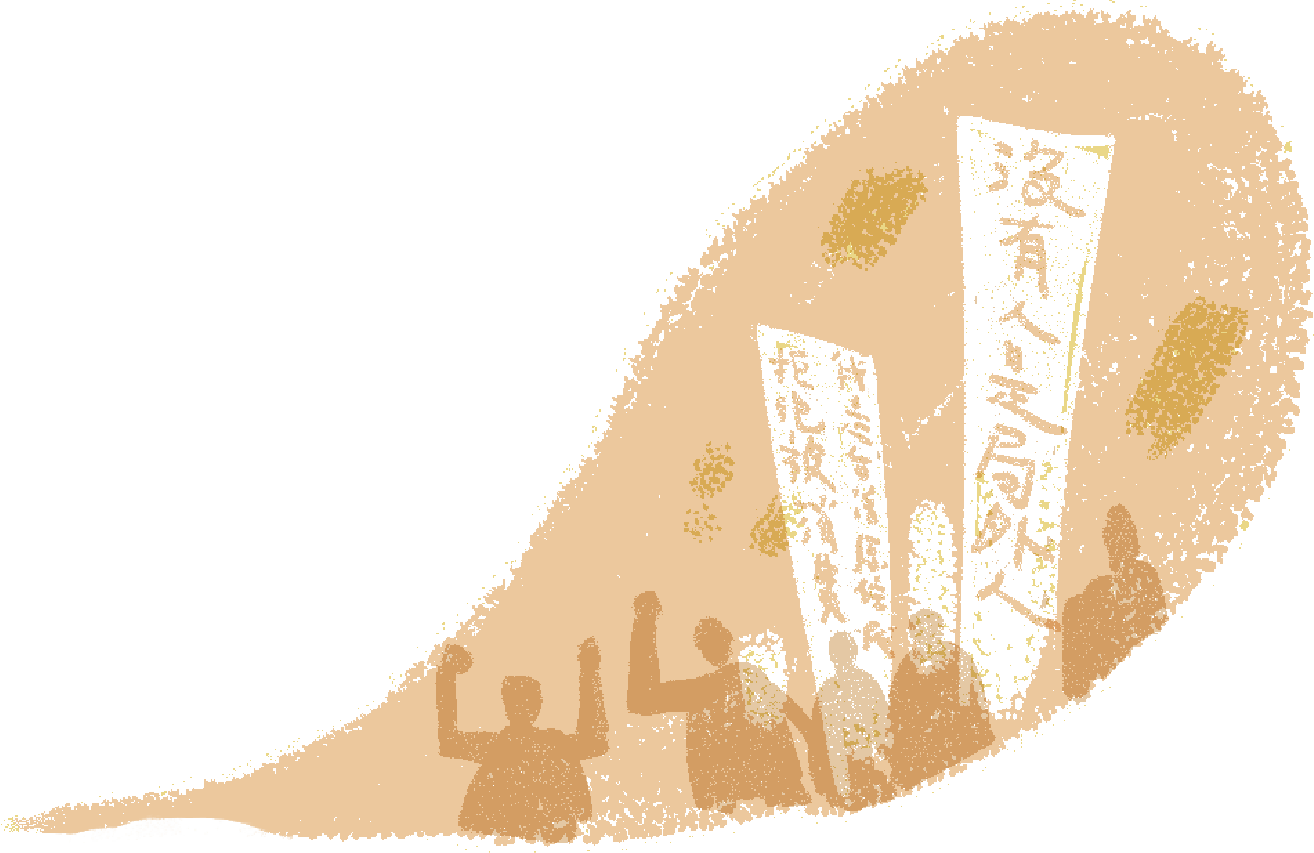 Fuis Sao Paotawa is 27 years old, a transgender, and a female soul in a male body. She used to be active in all gender movement activities, instigated and moderated many gender movement activities while she was an undergraduate, and used her own life story to educate everyone on gender issues.
Fuis Sao Paotawa is 27 years old, a transgender, and a female soul in a male body. She used to be active in all gender movement activities, instigated and moderated many gender movement activities while she was an undergraduate, and used her own life story to educate everyone on gender issues.
Fuis has long hair and pale white skin, eyes dazzlingly beautiful. Would have been hard to imagine that Fuis is biologically male.
Born in a Pangcah village in Taitung, Fuis lived with her grandparents until third grade, when she moved to Taipei to live with her parents. Fuis has always been soft-spoken and feminine, and ever since she could remember, she had felt that she was a girl. Since her mother wore mostly gender neutral clothes, she often put on her mother's clothes when she was younger.
The adults didn't pay attention to these signs when she was in elementary school, figured that she was just being a child. But when Fuis' voice failed to change in junior high school, her family began requesting that she try to lower her voice and sound less feminine, it was very confusing to Fuis, “my family wanted me to sound like a boy, but what should a boy have sounded like? I was born to sound this way, I have no idea what I could change about it.”
When Fuis became romantically engaged with a same-sex partner in senior high school, her parents brushed her off as gay without realizing the difference in gender identity, “they just don't talk about it and pretend that this never happened, we eventually break up and I will concentrate on my studies,” Fuis says, walking down the memory lane.
Misplaced Body and Soul
Constantly Switching Identities
Fuis was really confused about herself when puberty hit, it was like the wrong soul in the wrong body. Taiwan had yet to provide proper education on gender diversity then, and she could only resort to online searching to understand her gender identity. Finally Fuis understood in university that “‘sexual identity’ is not the same as ‘gender identity’, and that I was romantically attracted to a guy as a girl, not as gay.”
After she established the fact that she's female in her freshman year, Fuis began putting on makeup and wearing female clothes. She also began taking female hormones to make her body more feminine. Fuis attended university in southern Taiwan then, apart from her parents, but whenever she returned to Taipei, she had to change out of her female clothes, “as time went by, I felt like I was suffocating! Why do I have to switch and struggle between two identities, it was really painful for me and I didn't want to go on anymore.”
So by sophomore year, Fuis finally geared up the courage to confess to her parents her gender identity. Coming from a conservative indigenous Christian family, her parents couldn't accept it and cut ties with Fuis since. “Looking back, I kind of regret it, if I hadn't come forward then, maybe I could still go home and see my family. Sometimes I would encounter elders who really take care of me at work, and I would think of my mother, hoping that I could still go home.” Although Fuis can already talk about this situation with her family, her one regret will always be her family not being able to understand her.
Dedicated to Gender Movement
and Speak for Equality
Fuis began participating in gender issues because of her experiences in other social movements. She grew up with a sense of justice, joined the Taiwan Indigenous Club in university in freshman year and spoke for indigenous land justice, and noticed gender inequality in these social movements.
“Almost every movement is steered by the male, the female is always responsible for the insignificant logistics. Everyone came up with the ideas together, why is it always the men who gets to speak, I found that extremely unfair.” Fuis thus went into gender movement, organizing “male skirt week” on campus, hosted lectures with the school gender equality committee, and headed many gender movement activities.
Even though Fuis is different from the others, she had really grades, excelled at studying, grew up accepting different awards and was always surrounded by friends, besides. Stubborn in nature, if anyone comes at her with discriminating languages, she would always strike back, “I used to be call the Goddess of War at the Dept. of Nursing in university!” Fuis laughs.
But after she became a nurse upon graduation, facing the different kinds of patients and family members, she began receiving more attacks, people once even said to her, “how could someone like you be a nurse!” But Fuis is unyielding and always strikes back head on, “I know I am right, they came at me with insults first, and I will find ways to protect myself and safeguard my identity.”
Even though Fuis is mentally strong, she will admit that “it still hurts when I hear people say that, I didn't want this for myself, honestly, it takes great courage to walk out of the door like this.” Exactly the sentiments and sorrow of many transgenders.
Upon graduation, Fuis decided to hide behind the scenes and away from the spotlight. She admits that it takes tremendous courage to keep standing there on the front line, “I'm not just standing up as an indigenous person, but also as a transgender, I have to face all kinds of criticism, and it's not just myself being criticized, but also my parents and friends.”

Three Reasons
Keeping Gender Issues at Bay in Indigenous Villages
With her many years of experience in gender issues, Fuis admits that there is still a gap in the acceptance of gender diversity in the indigenous society, “in the village, everybody knows that such people exist, they just don't name it and pretend there isn't.”
She believes that there are three reasons behind it, 1. the education level in indigenous villages are generally low, and thus more confined by traditional ideas, getting married, having children, and sustaining the existence of family and indigenous village are the most important tasks; 2. many indigenous people are Christians and have a comparatively singular opinion towards gender; 3. land justice and cultural heritage is more pressing amongst indigenous issues, and gender issues do not make the priority list. All the above reason make the promotion of gender issues even more difficult.
But Fuis also points out that now we have the concept of providing gender education, it means that these opinions need to be “educated”, “if we can start young, while the child is still a blank piece of paper, everything we paint will show; but elders are already a full story book, it can be very difficult to add anything more to the book.”
Even though Fuis remains hidden behind the scenes these last few years, she continues to support the various gender movement activities, including the indigenous village cinema organized by Tong Liao Queer House, a gender equality advocacy group local to Taitung, or the Adju Music Festival organized by Colorful Wi, using films and music to entice the participation of local indigenous peoples, and share ideas with them. Fuis says, “these activities show indigenous people that we are just like everyone else, we all live in the same village and we want for you to actually see our existence, we need to be seen and recognized first before we can talk about how to live together.”

Slow but Steady Progress
in Gender Issues
Fuis shares that even though they still hear people calling them a “cult” in these places, many just feel for them, “the elders simply don't want their kids ostracized in society, that's why they want us to be like normal people.”
Back in their time, they could face discrimination simply by saying that they are indigenous persons, with indigenous peoples already the minority, indigenous transgender is even fewer in number. Fuis can understand the concerns of the elders, “to convince them, we need to first live a good life, that's the only way.”
According to her observation, indigenous people active in gender issues has only occurred in the recent decade, but even to this day, indigenous development in gender issues is still very conservative, like mankind discovering fire in the Stone Age. “When the Taiwan society is already discussing same-sex marriage and human rights, we are still doing to same thing, telling people what LGBT is about,” so says Fuis.
But she never gave up, “at least people nowadays are not treated the way we were, no one telling them ‘you are no child of mine,’ or ‘never set foot in this house again, you have no business carry the name of this family.’” The progress of gender issues is like a snail moving, slow but steadily forward. “There's no rushing it, we can only hope that it will one day develop a pair of legs and hands, and begin to crawl, or slowly learn to run,” her voice gentle but firm, and hopeful.




